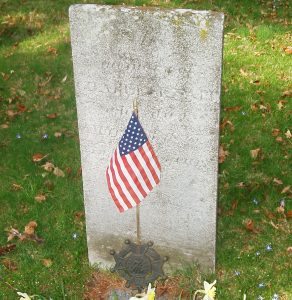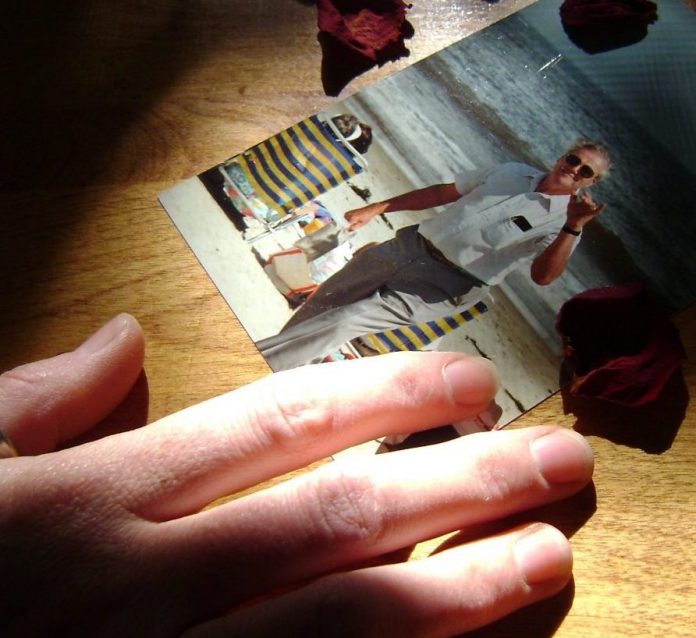By Denise Stump
Publisher’s note: Although Memorial Day is a time, traditionally, to recognize those who have fallen in combat for many it is also a time to visit gravesides and decorate with spring flowers. This can invoke feelings of unresolved or even unrealized grief during what should be the first big holiday of summer. RSL welcomes Denise Stump, a grief recovery specialist, to share a few thoughts on grief.
Over the years, we have been taught certain myths about grief such as time heals all wounds, be strong for others, keep busy, grieve alone, replace the loss and don’t feel bad. These are messages that are certainly not helpful to the one grieving. Many have grieved for 10, 20, 30 years or longer only to find out that they don’t feel better at all but feel their pain is even greater than before. This is certainly an indication that time does not heal all wounds. As John James, the founder of The Grief Recovery Institute states, “We’re taught how to acquire things, not what to do when we lose them.”

The meaning of grief is the normal and natural reaction to a significant emotional loss in our lives. When we lose a loved one, for example, we may express shock at the onset of the news or become numb. Others may cry uncontrollably and others may not cry at all. That certainly does not mean that emotions are not being felt. Grief is individual and unique. No two people will grieve the same over the same loss.
In our society today, grief is one of the most off-limits topic of conversation. We are not afraid to talk about our feelings or even death, however, we are afraid to talk about grief or our reaction to loss. Have you ever asked someone you know that lost a loved one how they are doing only to be dealt with the response “I’m fine?” What they really mean is “I am really hurting inside.” There are many people we meet daily who start their day by putting on a happy face because they really don’t know how to express the fact that they are bleeding to death because of the pain and grief they have experienced.
All one must do is watch the news or read the newspaper to realize the unsurmountable grief that is taking place within our society today. Grief is not a stranger to humanity. We all experience the unsheltered emotions of grief whether it’s the loss of a loved one, a divorce, retirement, or even a loss of a pet.
Grieving also takes place when we think of what could have been and missing what is no longer there. We may encounter certain stimuli that produces a memory such as Old Spice cologne that my grandfather used to wear, or homemade banana pudding my mother used to make, or special memorable vacations. We all have those memories causing us to reminisce and wishing things were different. Memories are wonderful gifts to hold deep in our hearts and to share with others.
Unresolved communication also produces emotions of grief. Many times, after the loss of a loved one we may think of things we should have said or things we wished we would have done. Often, we may be afflicted with feelings of guilt.
Refusing or unwilling to talk about the pain one is experiencing can also lead to a dependency on alcohol, food, drugs, isolation, shopping or anger. These are nothing more than distractions from the real emotional event such as a death, divorce, or other losses. Imagine a tea kettle in its healthy state where it releases energy immediately as it builds up. Now imagine your own personal tea kettle where pressure builds up with no escape as if there is a cork in it. This is the beginning of an emotional explosion. There are three major problems with becoming dependent on an emotional substance. The first is that they work, or appear to work. The second is that they are only short-term and the third is that they do nothing to remove the cork that is jammed in the spout. If feelings or emotions are left unattended then there is the probability that health problems may occur later in life such as depression, anxiety, anger, weight gain or in extreme cases suicide.
In the book Don’t Take My Grief Away by Doug Manning he states this about grief. “People cannot be

helped until they want to be helped; most of the time they do not want helped until they hurt. When you are ready, your choice is to say, ‘I want to get well’ or to say, ‘I can’t’. If you say, ‘I can’t’, growth will stop and wait for your decision to get well”. In order to heal a broken heart, it is up to each individual to take action to feel better in order to live life to the fullest.
What I know to be true after many years of grieving the loss of my parents is that I ultimately made myself the victim. When making yourself the victim it tarnishes what the future may hold because you have a tight grip on your past allowing it to define your destiny. This creates a series of missed opportunities in life which trickles down to another form of grief which is wishing things had been different or better. Once one begins to chip away at the past with a new self-awareness and self-discovery it is only then that healing will begin to unfold. A major piece of the puzzle is honesty. It’s important to be honest with yourself with whatever emotion or feeling you are experiencing otherwise it is highly probable that you will not recover from your loss.
As a Grief Recovery Specialist, I facilitate an action program to groups or individuals by providing the necessary tools to help move beyond pain and loss. Recovery is not about forgetting a loved one. It is about healing that deep-rooted pain so that one is not dragging unfinished business into the next phase of their life. Recovery is about becoming emotionally complete and beginning the next phase of life with a new perspective. There is nothing more rewarding than watching transformation take place of a participant in the program who has experienced a traumatic loss and come away with a new zest for life.
Denise is a Certified Grief Recovery Specialist and Life Coach. Her grief recovery training and certification is from The Grief Recovery Method. Her experience with loss and grief started early with the loss of her father at 3 years old. Her mother passed away when she was 11. Through her training as both a life and grief recover coach she has grown in her own path and now is passionate about sharing the power of those life lessons with those whom she helps. You can contact Denise for group or individual consultations at:
Denise Stump








